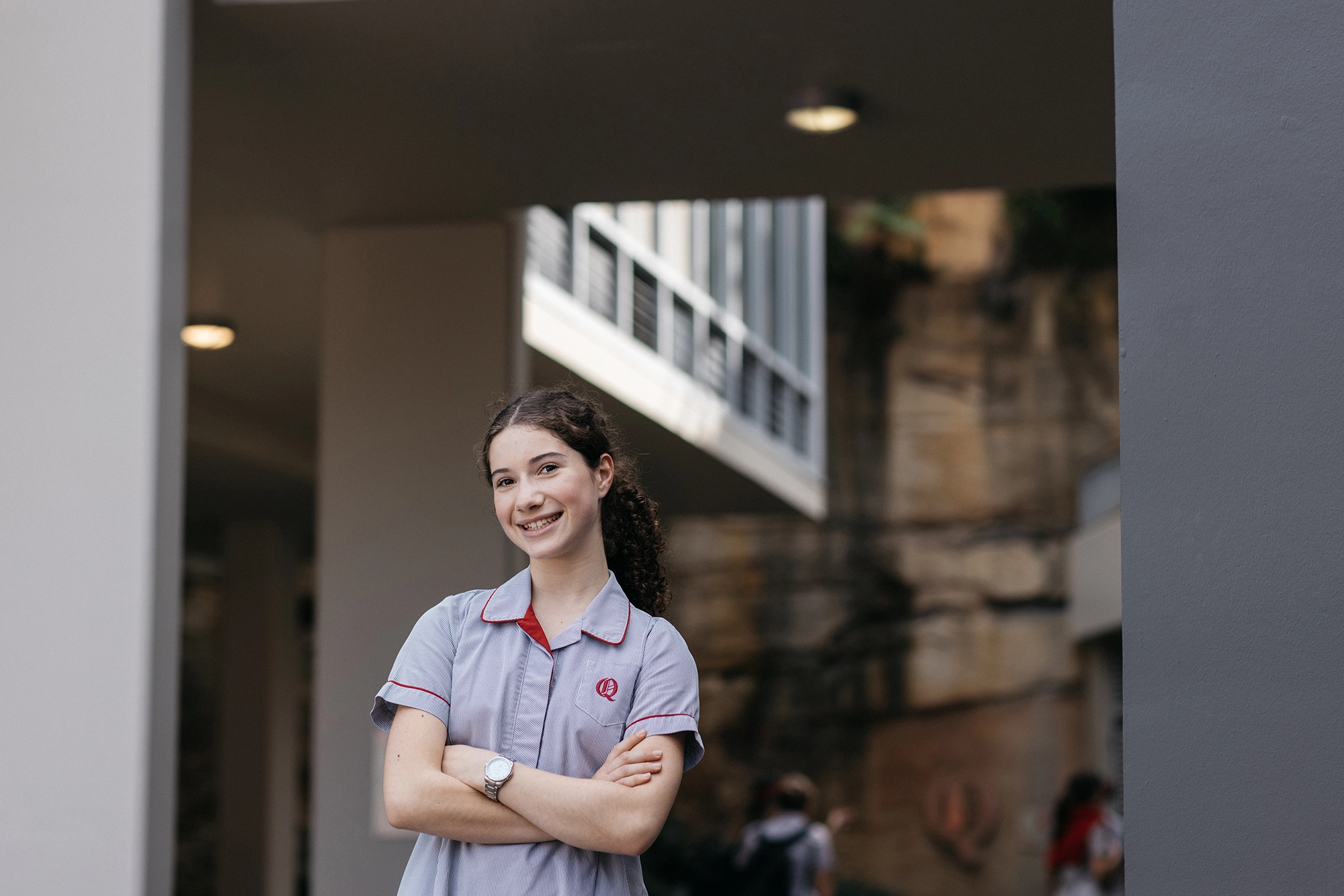HSC & IB
Prepared for significance, anywhere.
Graduate with your choice of national or international credential.
Queenwood is one of only a few schools to offer its students both the Australian Higher School Certificate (HSC) and International Baccalaureate (IB) pathways to graduation.

We have offered dual pathways for over 15 years and our girls have had remarkable success over that time.
Both HSC and IB are excellent credentials and each girl has the opportunity to choose the style and pattern of study which best suits her individual interests and preferences.
There are frequent opportunities during the year to learn more about each pathway, and we provide girls and parents with tailored advice and guidance during the course of Year 10 to assist in making the choice.
After completing the HSC or the IB, students are awarded an ATAR (Australian Tertiary Admissions Rank) which is used for entrance into Australian universities. Students wishing to study overseas can choose either the HSC or the IB and are assisted in their applications by our Careers Advisor.
2025 Academic Highlights
From a cohort of 111 students (92 HSC and 19 IB students).
-
Perfect IB Score 45/45
99.95Congratulations Ananya G & Isla G -
Highest HSC ATAR
99.75Ava F achieved 2025’s highest HSC ATAR -
Distinguished Achievers
177Mentions on the HSC Distinguished Achievers list
Year 11 & 12 - Dual Pathways
Higher School Certificate (HSC)
The Higher School Certificate is the highest academic credential within the NSW school system and allows a particularly flexible choice of subjects.
Girls undertake 12 units of study in Year 11, with most subjects counting for 2 units. Girls typically take 11-12 units of study in Year 11 with further subject specialisation options available. Only English is compulsory.
Subjects On-offer
- English Extension 1
- English Extension 2 (Year 12)
- Advanced English
- Standard English
- Mathematics Extension 1
- Mathematics Extension 2 (Year 12)
- Advanced Mathematics
- Standard Mathematics
- Biology
- Business Studies
- Chemistry
- Chinese Continuers
- Chinese in Context
- Music 1
- Music 2
- Music Extension (Year 12)
- Drama
- Economics
- French Continuers
- French Extension (Year 12)
- Geography
- Ancient History
- Modern History
- History Extension (Year 12)
- Health and Movement Science
- Physics
- Science Extension (Year 12)
- Textiles & Design
- Design & Technology
- Visual Arts
Extension subjects may also be available for languages.
International Baccalaureate (IB)
The International Baccalaureate Diploma Programme is a two-year course of study for Years 11 and 12 which has a distinctive educational philosophy and is offered in over 140 countries.
Girls must undertake one subject from each of six categories: English language and literature, foreign language, humanities, sciences, mathematics, the arts. They must also undertake additional courses and activities: the Extended Essay; Creativity Activity Service; Theory of Knowledge. Girls are awarded a final score out of 45.
Subjects On-offer
- English Language & Literature
- English Literature
- Mathematics Applications & Interpretation
- Biology
- Chemistry
- Economics
- French
- Geography
- History
- Latin
- Mandarin
- Spanish ab initio (Beginners)
- Theory of Knowledge
- Physics
- Creativity Activity Service (CAS)
- Music
- Visual Arts
- Environmental Systems and Societies
Please note curriculum offering is subject to change.